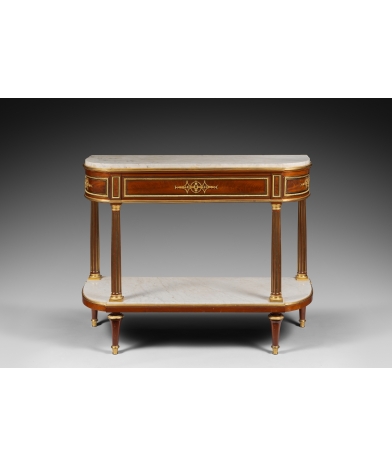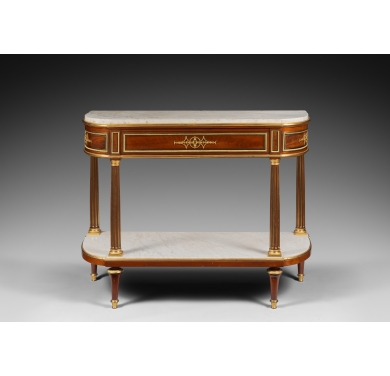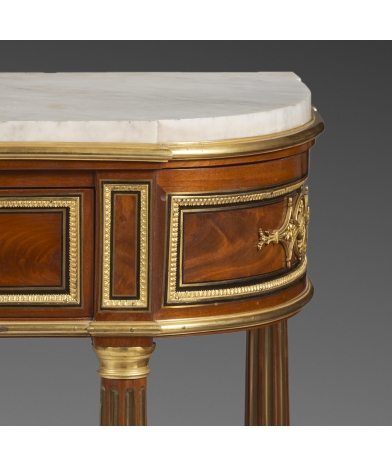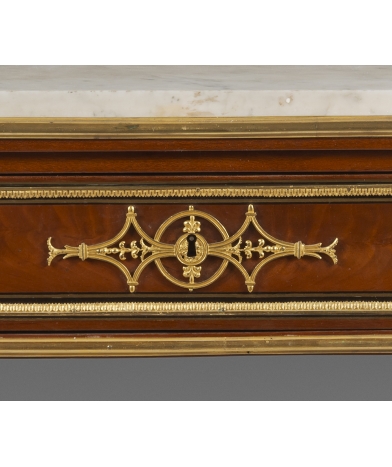Important mahogany console from the Louis XVI period
Sideboard described and reproduced in "L'Art et la Manière des Maitres Ebénistes Français au XVIIIème siècle" by Jean Nicolay, Tome I page 271
Dimensions : W. 122 x D. 45 x H. 94.5 cm
Made in the final years of the reign of Louis XVI, this sideboard is an important piece with sophisticated features. Undoubtedly made for an important patron, this sideboard is the work of Nicolas Lannuier, a master cabinetmaker specialising in "luxury pieces" in the 18th century, including extremely sober mahogany furniture. Between 1786 and 1788, Lannuier supplied over £5,000 worth of furniture to the Prince de Condé for the Château de Chantilly. He also supplied the Comte de Provence, the future Louis XVIII, and the Duc d'Orléans.
In his reference work "L'Art et la Manière des Maitres Ebénistes Français au XVIIIème siècle, Tome I, published in 1976", Jean Nicolay writes "Nicolas-Louis-Cyrille LANNUYER signed very few pieces of furniture, all of which were extremely well made". In the same work, he reproduced our sideboard on page 271 with the following comment: "The mahogany console (Fig. A) shows infinitely distinguished and meticulous workmanship, while the discreet bronzes are limited to decorating the piece with their studied and rare lines".
To the uninitiated, this console looks classic, but to the connoisseur it is a work of great refinement: The Cuban mahogany is first-rate, lightly flamed and extremely fine-grained; the two pure white marbles are precisely set into the top and brace shelf; at the waist, the 7 finely chased bronze frames are positioned on ebony reserves, themselves surrounded by brass fillets. The swollen uprights, adorned with brass fluting, are slender at the waist and more powerful at their bases. They end in spinning top legs that repeat the design of Adam Weisweiler, whose apocryphal stamp was added to this piece of furniture in the 20th century.
The original label on this console gives us some valuable information: Nicolas Lannuier's workshop was called "A la ville de Lion" and was located in Paris on "rue du petit lion", which ran from rue de Condé to rue de Tournon, and is now called "rue Saint Sulpice". It also tells us that Lannuier had taken over the workshop and business of Reizell, the King's favourite craftsman, spelt here "Rezeil". Indeed, the Prince de Condé, for whom Lannuier did a great deal of work, had previously been Reizell's client.






